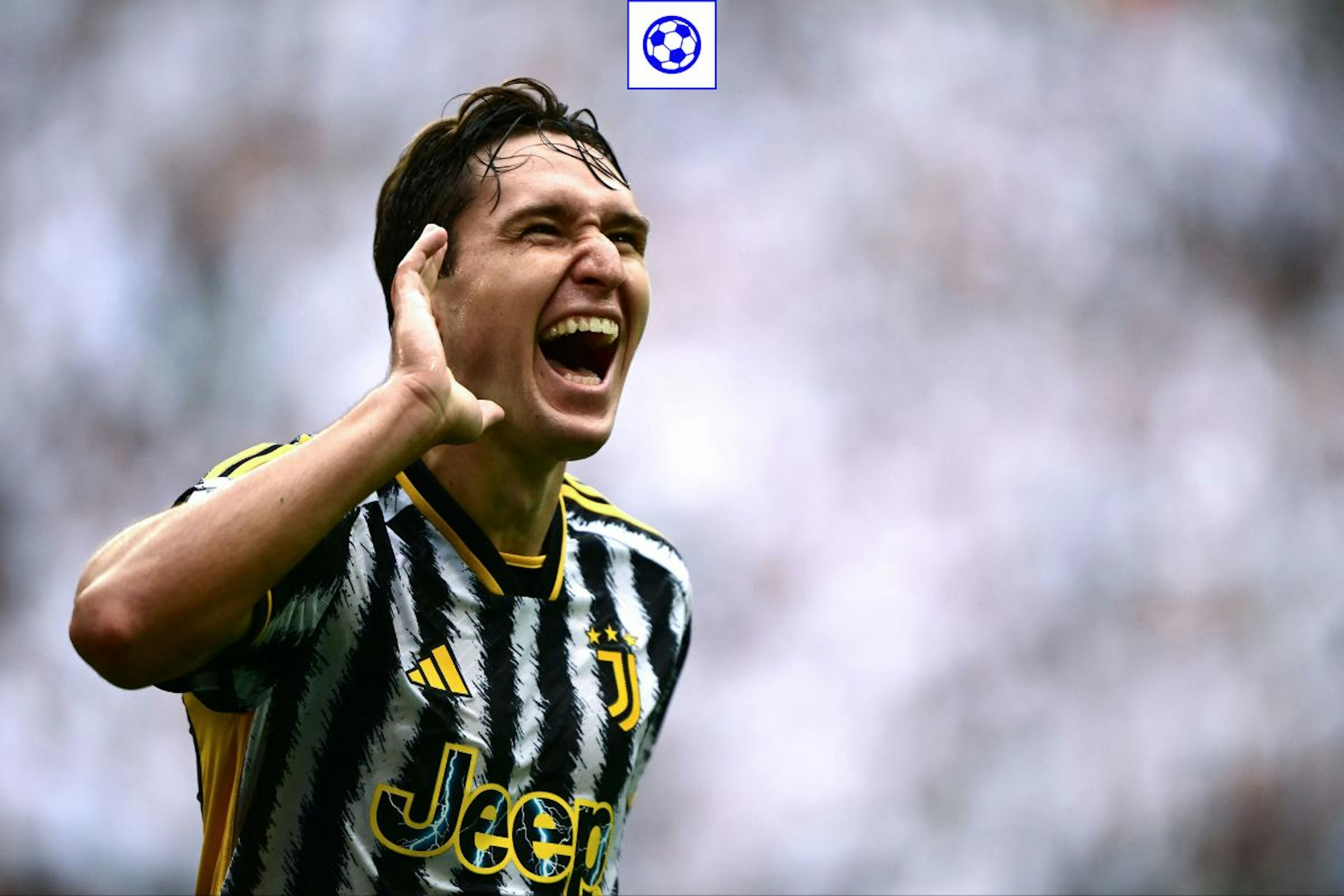Federico Chiesa 2.0

Federico Chiesa slid across the Wembley turf, announcing himself as Italy’s next star player. It was the 60th minute of the Euro 2020 semi-final and he had just scored the opening goal, one which had added to the not inconsiderable hype around him. He was going mainstream. Everyone in Italian football knew what Chiesa was, and what he could be, but this was his moment on the biggest stage, stepping up to provide the breakthrough when his country needed it.
I’m always sceptical when it comes to the son of a footballer, as the mind drifts towards Romeo Beckham or Diego Maradona Jr, but Federico Chiesa is certainly different. His dad, Enrico, was a dynamic goalscorer with Sampdoria, Parma and Fiorentina, before an Indian summer with Siena in his thirties. Enrico has his own Serie A legacy, and now his son is forging his path without constant reference to the previous generation, something which is a rarity in football.
Federico came through the youth ranks at Fiorentina, where he was coached by club legend Kurt Hamrin for a period. He showed promise in his two years in the Primavera side, during which he signed his first professional deal, which led to Paulo Sousa giving him his debut against Juventus on the opening day of the 2016-17 season, where he was substituted at half-time.
Sousa opted for a bit more quality and experience in Cristian Tello. And that was the last we ever heard of Federico Chiesa. Of course not, but it wouldn’t have been an unfamiliar story. He made a habit of strange firsts, marking his European goal with a red card, a double which I feel always adds a level of lore to a player. Veni, vidi, vici, but instead of conquering, it’s a second yellow.
Throughout his four seasons in Fiorentina’s first team, he made a name for himself as a winger/wide forward; the focal point in a team that didn’t look like it was going anywhere. Oh, if only he’d held on for Vincenzo Italiano. Imagine him and Nico Gonzalez on either side. Oh well, never mind.
It's the perfect club to continue on his Del Piero/Baggio path.
I won’t pretend I’m not disappointed he went to Juventus, a transfer that did its best to kill the football romantic within me, but I’ll begrudgingly admit that it’s the perfect club for him to continue on his Del Piero/Baggio-esque path.
Right before the Euros win, Chiesa’s winning goal in the Coppa Italia for Juventus final took him to a new level. It made him the big man for the big occasion, highlighted even further when Juventus’ All or Nothing documentary showed the bollocking that Andrea Pirlo gave him in the changing room at half-time, before Chiesa went full Jimmy Grimble to win it for Juve. It was the sign of a starboy becoming the main man. He was no longer some footballer’s son, but Federico Chiesa.
His path towards becoming a Ballon d’Or challenger came to an abrupt halt when he tore his ACL in January 2022, meaning he has essentially spent the last eighteen months recovering, getting fit again and, lately, proving to himself, as much as anyone, that he can still do it.
He has also been affected, perhaps positively, by the psychodrama around Max Allegri and Juventus. After a shift to a 3-5-2, Chiesa found himself as a pseudo-wing back. More like a winger, but still, there were suggestions that he should be considering himself to have been Cuadradoed. He must have been asking himself was it because of the injury? Did Allegri think he’d lost his pace? Or, as I suspect, had Allegri lost his mind (again)?
Either way, that’s all in the past and Chiesa is now (slowly) entering his fantasista phase. On paper, he’s the second striker to Dusan Vlahovic in a 3-5-2. In reality, he’s a little bit of this, a little bit of that. He’s making things happen.
Chiesa is a modern take on the fantasista.
So, what changed to create Chiesa 2.0? For me, his willingness to adapt and make Allegri happy, rather than dig his heels in and demand to be played as a winger, played its part as much as the injury. I don't think he's necessarily lost pace or confidence to get at defenders, issues one would associate with a player recovering from a serious knee injury, but it still has to be factored into the future thinking around the player.
Allegri has to be given some credit for showing a modicum of flexibility, allowing Chiesa to do his own thing and become that roaming forward. A modern take on the fantasista, perhaps. Not quite a magical playmaker, not quite a Thierry Henry-esque power forward.
The new Chiesa seems to be enjoying his football this season. Scoring in three of his first four games helps, but the freedom given, and trust placed in him would fill any player with confidence. After a torrid year of recovery and having spent last season trying to define his worth and identity at Juventus, Chiesa is back on the path to the top he found himself on in the aftermath of Euro 2020.
There will always be a slight fear that the knee injury may reoccur, but for now Chiesa must keep doing what he’s doing. In an era where hype often outweighs the player, he is one who has met expectations, and often exceeded them. He’s the big game player, Juventus’ spark. Granted, we’re only four games into the season, but it feels like we’re only on the cusp of Chiesa’s grand return, weaving the tapestry of his career as the futuristic fantasista. A little bit of the golden era, a little bit of the modern era.